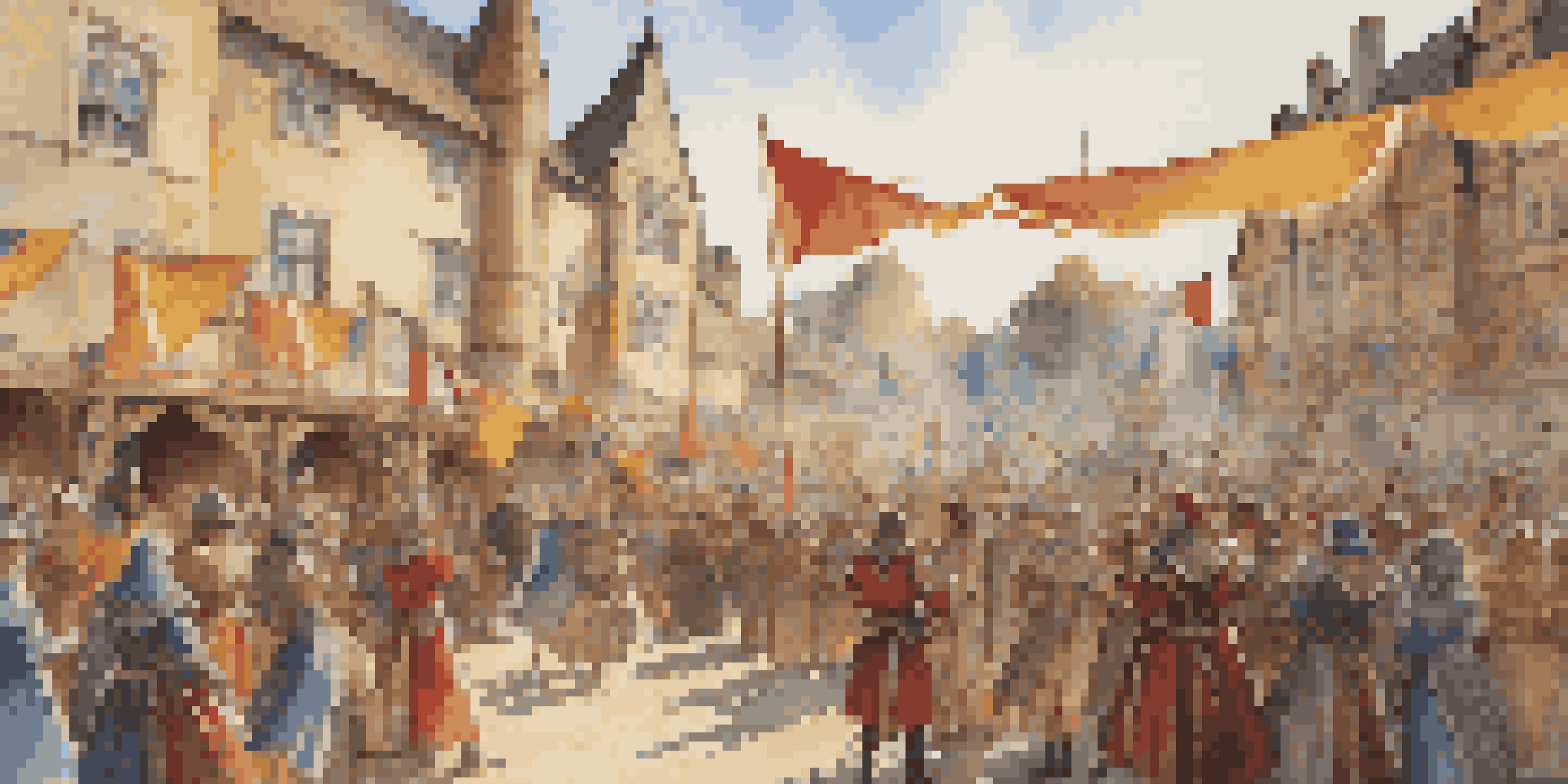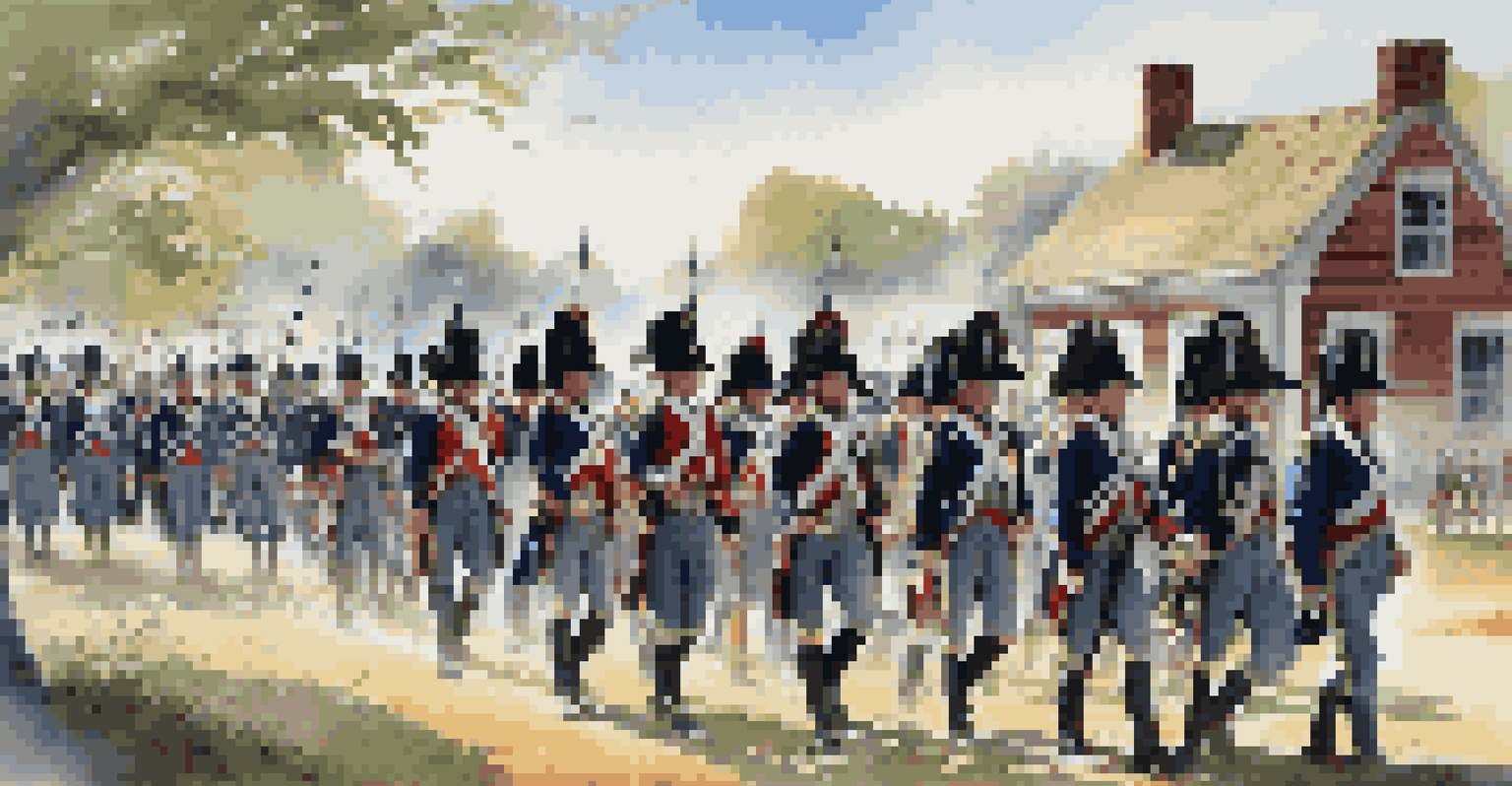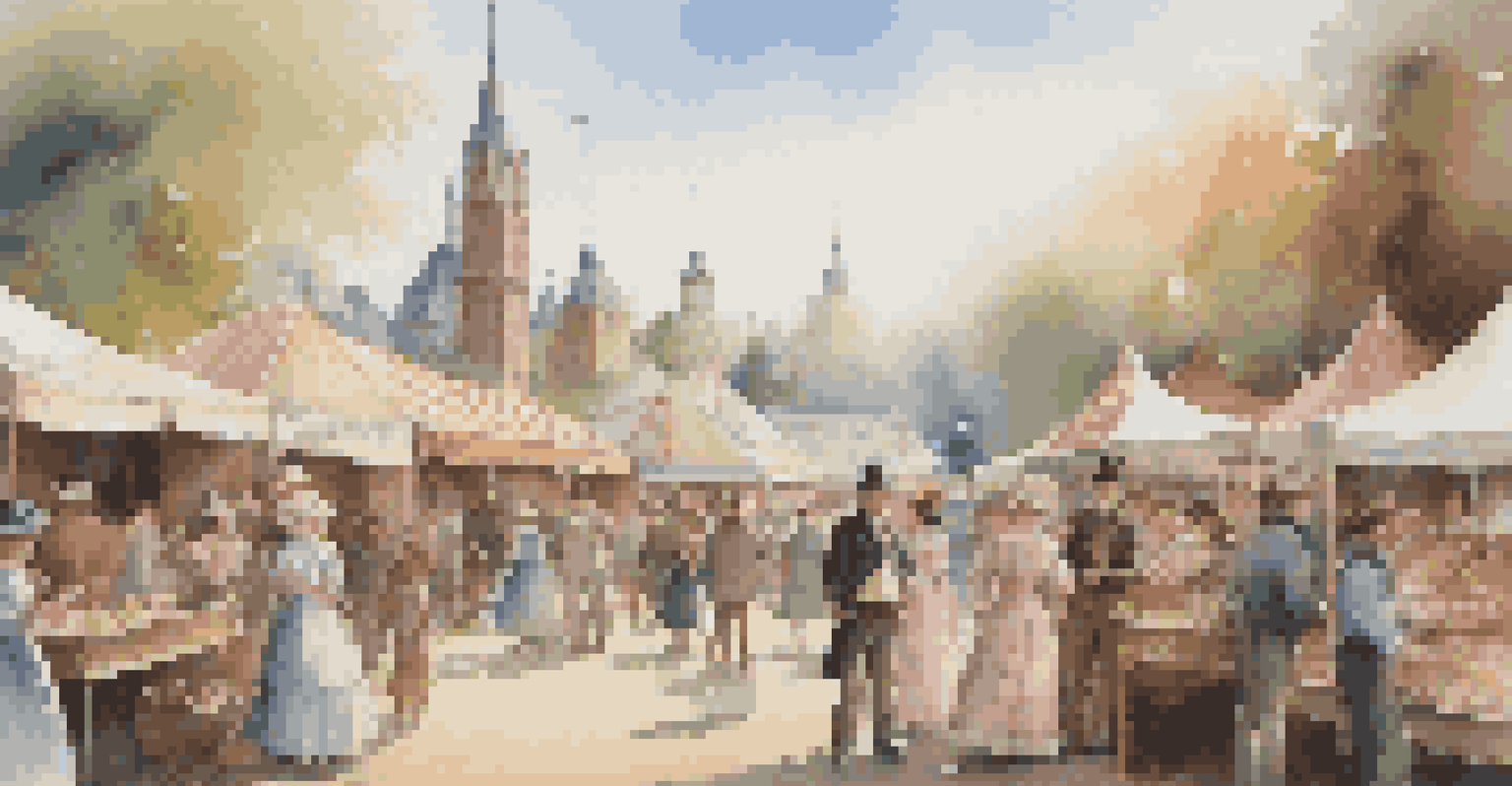Historical Reenactment Festivals: A Celebration of History

What Are Historical Reenactment Festivals?
Historical reenactment festivals are immersive events where participants recreate specific historical periods or events. These festivals often feature detailed costumes, authentic food, and demonstrations of crafts and skills from the era. By bringing history to life, they offer a hands-on experience that textbooks simply can’t provide.
History is not a burden on the memory but an illumination of the soul.
At these festivals, you might find people dressed as soldiers from the Civil War or villagers from the medieval era, all engaged in activities that reflect their historical roles. This captivating blend of education and entertainment invites attendees to step back in time and witness history firsthand. It’s like walking onto a movie set, but with the added thrill of real-life interactions.
For many, these events serve as a way to connect with their heritage or to cultivate a passion for history. Families, students, and history buffs alike enjoy learning through experiential activities, making these festivals an engaging way to explore the past.
The Purpose Behind Historical Reenactments
The primary purpose of historical reenactments is education; they aim to teach participants and audiences about significant events and everyday life in different eras. This approach allows for a deeper understanding of history, as attendees can see and feel the context of the time rather than just reading about it. The interactive nature of these festivals makes history memorable.

Moreover, reenactments often highlight lesser-known stories and perspectives. By showcasing diverse voices and experiences, they enrich our understanding of history, making it more inclusive. This emphasis on representation helps foster a more comprehensive narrative of the past.
Educational Value of Reenactments
Historical reenactment festivals provide an immersive learning experience, allowing attendees to engage with history in a way that textbooks cannot.
Additionally, these festivals serve as a reminder of the value of preserving history. By paying homage to the past, participants and organizers contribute to a cultural legacy that can inspire future generations. It’s a celebration of shared stories that bind communities together.
The Role of Participants and Volunteers
Participants in historical reenactment festivals come from all walks of life, bringing their passion and creativity to the event. Many spend countless hours researching their chosen period, crafting their costumes, and mastering the skills of the time. This dedication transforms the festival into an authentic representation of history.
The more you know about your past, the better prepared you are for your future.
Volunteers also play a crucial role in the success of these events. From setting up the venue to guiding visitors, their hard work ensures that everything runs smoothly. Their commitment to preserving history enriches the festival experience for everyone involved.
For many participants, reenacting history is more than just a hobby; it’s a way to forge connections and friendships with like-minded individuals. The camaraderie built during these events often leads to lasting relationships, creating a community that celebrates shared interests and passions.
Popular Themes in Historical Reenactment Festivals
There are numerous themes explored in historical reenactment festivals, each offering a unique glimpse into different eras. Some popular themes include medieval jousting tournaments, Revolutionary War battles, and Victorian-era fairs. These varied themes cater to diverse interests, attracting a wide range of visitors.
Additionally, festivals often include themed entertainment, such as period music, dance, and storytelling. These elements enhance the immersive experience, allowing attendees to engage all their senses. For instance, a medieval festival might feature archery demonstrations, traditional crafts, and even a feast with authentic recipes.
Community Impact and Identity
These festivals boost local economies and foster cultural pride, strengthening community connections through shared history.
Each theme serves as a portal to the past, allowing participants and visitors to dive deep into the cultural aspects of different times. This exploration fosters appreciation for the historical context and the evolution of society, making each festival a rich learning experience.
The Impact on Local Communities
Historical reenactment festivals often have a significant impact on local communities, both economically and culturally. They draw tourists, boosting local businesses such as hotels, restaurants, and shops. This influx of visitors can provide a much-needed economic boost to small towns and rural areas.
Culturally, these festivals can foster a sense of pride and identity within the community. By celebrating shared history, residents strengthen their connection to the past and to one another. The festivals often involve local schools and organizations, creating a collaborative atmosphere that unites various groups.
Moreover, these events can spark interest in local history and preservation efforts. When communities come together to celebrate their heritage, it encourages the safeguarding of historical sites and traditions, ensuring that future generations can learn from and enjoy their rich past.
Challenges Faced by Reenactment Festivals
While historical reenactment festivals are a joy to attend, they also face various challenges that can impact their success. One significant challenge is maintaining historical accuracy while also ensuring entertainment value. Striking the right balance can be tricky, as some participants may prioritize authenticity over audience engagement.
Funding is another hurdle that many festivals encounter. Organizing a large-scale event requires substantial financial resources, and securing sponsorships or donations can be a daunting task. This financial pressure can limit the scale and scope of what organizers can offer.
Challenges Facing Reenactment Events
Maintaining historical accuracy while ensuring entertainment and securing funding are significant challenges for organizers of reenactment festivals.
Additionally, the preservation of historical practices can be hindered by modern regulations and safety concerns. Participants must navigate these constraints while still providing an engaging experience, making it crucial for festival organizers to adapt and innovate continuously.
How to Get Involved in Historical Reenactment Festivals
If you’re interested in diving into the world of historical reenactment, starting is easier than you might think! Attending a local festival is a great first step, as it allows you to observe and connect with participants. You can also engage with event organizers to learn about volunteer opportunities or how to join a reenactment group.
Many reenactment groups welcome newcomers and provide resources to help you get started. They often organize workshops on crafting costumes, historical techniques, and even battlefield tactics. This supportive environment can help you gain confidence and knowledge before stepping into your first role.

Finally, consider researching a specific era or event that interests you. This personal connection will make your reenactment experience more meaningful. Whether you decide to participate or simply enjoy the festivities, there’s a place for everyone in the vibrant world of historical reenactments.